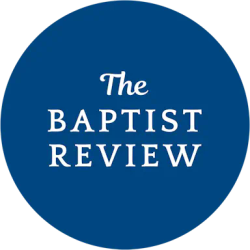“The Conservative Resurgence did not work.”
That's the provocative opening from Sam Rainer's recent piece at The Baptist Review about the SBC's failures since the end of the Conservative Resurgence in the mid-1990s. He deftly outlines many major deficiencies that have plagued the SBC over recent years, such as abuse, coverups, powerplays, and more. While Rainer does not distinguish between causation and correlation regarding the CR’s impact, specifically regarding baptisms, the statistics showing the decline in evangelism, attendance, and baptisms doesn't give much hope for the SBC's future. But what is to blame for the decades long downward trend in the SBC?
Rainer finds no hope in the future of the Cooperative Program, saying it's “in its last season.” Calling it “past its prime,” he says that since the SBC is in a different situation today than in the past, the system of aggregate funding is no longer needed. In the most pressing section, he calls the CP a “giant deflating balloon” that will not go out with a big pop but with a thousand tiny pricks of scandal, mistrust, and financial wrongdoing.
Despite his pessimistic outlook on the CP, Rainer also repeatedly mentions the good of the program. He calls the commission that instituted it “genius in their approach to fundraising,” says that it “helped fuel the fire of evangelism, discipleship, and missions,” and says that the CP worked “brilliantly.” Even while calling to “trade in the old model that has served us well and get a new one to drive to the future,” he can't help but admit that the “engine still works” in the CP now. There is no doubt that the CP has real challenges, but that challenge is not in the model itself. By Rainer's own admission, the CP has worked brilliantly and is still working today.
It's my belief that the challenges of the CP are not due to the mechanics of the program but to the lack of trust among churches to work together. Much of the lack of trust stems from the scandals that he outlined at the beginning of his article. While the SBC does have programmatic issues that need resolving, one of the biggest obstacles we must face is that we simply don’t trust each other.
In spite of the lack of trust, there is ample evidence that the CP has worked and is still working across the SBC today. Every news release about Disaster Relief, missionary commissioning, or church planting is a testament to that fact. But the simple truth is that working together takes trust, which is more challenging than ever in our world today.
Left unchecked, this vacuum of trust threatens to destroy our cooperative work. Trust is inherently necessary for cooperation and shared purpose. Churches need to be able to trust the entities to whom they give their money and the other churches they are partnering with. When trust is lacking, churches hesitate to commit their financial resources to mission agencies, their future ministers to our seminaries, or their curriculum needs to Lifeway. The trust that undergirded the Cooperative Program has eroded, especially in the age of social media. However, the idea of the Cooperative Program is still effective and working.
Rainer points out that when the Cooperative Program was started in 1925, “modern methods of transportation and communication were just beginning. Aggregating funds made sense because word traveled slowly.” But the one of the major issues that the CP sought to solve was not communications, but consistency. There were several failed attempts at funding the work of Southern Baptist before this, such as the Judson Memorial Fund, the $75 Million Campaign, and the many special pleas made by agencies to churches every week across the country. The need was communicated well across the years. Still, until the CP, those programs were inconsistent and relied on constant reminders. The Cooperative Program didn't provide a new way of communicating the need to the churches but a constant and reliable way for churches to work together. The CP provided a steady stream into the “tributary” of the Cooperative Program, providing the entities with funds they could rely on and build from.
There can be no argument that the Cooperative Program worked from its humble beginnings in 1925. As many have pointed out, it is still working today. But without trust among churches, entities, and pastors, we will not be able to work together, no matter how much money we have.
There are many good reasons that trust has declined. The harsh reality that we must face is that not everyone deserves our trust. Repeatedly, many “conservative heroes” have revealed themselves to be abusers of people, power, and money. After the silence of many other leaders in the face of such abuse, many churches and pastors have chosen to walk away and be done with the SBC. Rainer notes, “The two major battle cries of the conservative Resurgence were doctrine and mission—what we believe and how we cooperate. Yes, we are more traditional, but we are also less unified.”
The erosion of unity and trust has not come because people believe different things. The Southern Baptist Convention is more aligned doctrinally than it was decades ago, as Rainer points out. But when pastors and churches no longer trust one another, give no benefit of the doubt, and always assume the worst, it doesn't matter if they believe the same thing. Trying to force agreement not only in doctrine but in practice will quickly erode the little trust left in the SBC.
Before the internet, we had little idea of the nuance of other churches' ecclesiological practices. Now, it’s easy to see that some churches confess to holding the same doctrine but carry it out differently. This can be seen in the different ways Baptists approach church governance, complementarianism, or politics. Sadly, it has become common on social media to assume that if someone has a different practice than us, they can't possibly believe the same thing we do. It seems that every sermon, website, and social media post is ripe for bad-faith readings, taking everything in the worst possible light.
The age of social media has given us contentious Southern Baptists a new and more public way of fighting, as if we needed one. Those who proved worthy of mistrust make us think that no one is worthy of our trust, making us suspicious and examining every sermon and post for a misspoken phrase we can pounce on to prove our point. The solution to the lack of trust among Southern Baptists cannot be to eliminate the Cooperative Program, the one thing that has us working together.
If we were to scrap the CP because we cannot trust each other anymore, we would simply be trading one problem for another. Returning to societal giving will lead to more appeals for funds, missionaries who can't be sure of their future on the field, and entities becoming tribalistic over their ministries and funds. Societal giving leads to even less trust as churches adopt a “prove it” mentality and the likelihood of more emotional (and, too often, manipulative) appeals to raise funds. Simply put, losing the Cooperative Program will only hasten the demise of the SBC, as we will have no more reason to work with each other, funding only those we agree with 100% and withholding cooperation from those who think differently than we do.
What is the alternative? We must restore trust to the Southern Baptist discourse. This does not mean blind faith, as many we have trusted in the past have hurt us. The old adage of “trust but verify” is still true today. The problem is that many just seem to want to verify everything without ever giving any trust. Returning trust to Southern Baptist life can happen through increased transparency about how money is spent, honesty about leaders' failures, and a willingness to work with others who believe the same things but practice them differently.
We need everyone to speak honestly and openly about the damage that poor leaders have caused in the SBC. We need to be forthright about how every dollar is spent, not just to the trustees but to the churches who give each dollar. We also must learn how to allow different practices while holding to the same doctrine. This happens in a myriad of ways in Baptist life, including honoring the Sabbath, practicing communion, approaching politics, meeting societal needs, church governance, baptism, and more. Even with the same goal, our methods vary. But we don't let that become a reason we quit working together.
I believe the mission of the SBC–to work together in one sacred effort for the gospel's sake–is worth fighting for. The Cooperative Program has proven itself over and over as one of the best ways to make that happen. The SBC will fade away someday, and the work of God will not be slowed down. But until then, the trust among Baptists has enabled us to work together to fund thousands of missionaries and church planters, disaster relief, collegiate ministries, children's homes, pregnancy centers, colleges, seminaries, and more.
We won't all agree on every single detail. We are Baptists, after all. But by the grace of God, we can continue to work together to take the good news of Christ across the street and the world. I trust the leaders God has blessed us with in the SBC, and I trust the heart of its pastors and members to put Christ first above all.
Editor's Note: As a part of its commitment to fostering conversation within the Southern Baptist Convention, the Baptist Review may publish editorials that espouse viewpoints that are not necessarily shared by the TBR team or other contributors. We welcome submissions for responses and rebuttals to any editorials as we seek to host meaningful conversations about the present and future of our convention.


